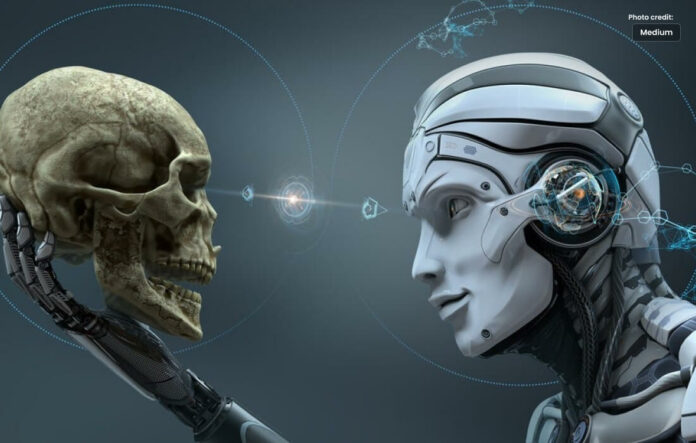Explore how can AI will be dangerous to humans in the future?
Introduction:
Artificial Intelligence (AI) has become an integral part of our lives, revolutionizing industries and enhancing human capabilities. However, as AI evolves and advances, concerns regarding its potential dangers to humanity have emerged. In this article, we will explore the realm of AI and delve into the possible risks it poses to humans in the future.
The Rise of AI and Its Benefits
AI has rapidly transformed numerous sectors, including healthcare, finance, transportation, and entertainment. Its ability to process vast amounts of data and make complex decisions has led to improved efficiency and innovation. AI-driven algorithms have aided medical diagnoses, enabled self-driving vehicles, and even enhanced customer experiences through personalized recommendations.
AI Tackling Dangerous Tasks
One of the main advantages of AI lies in its capability to handle dangerous tasks that are risky for humans. Robots are being deployed for activities such as bomb disposal, deep-sea exploration, and hazardous material handling, reducing the potential harm to human lives. By utilizing AI in these scenarios, we effectively keep humans out of harm’s way.
Enhanced Decision-Making
AI algorithms can analyze data and provide insights to support decision-making processes. Given the vast amount of information available today, AI systems can offer valuable guidance in a variety of areas, from business strategies to medical treatment plans. However, it is crucial to ensure that AI remains a tool for humans rather than replacing human judgment altogether.
Emerging Concerns and Ethical Challenges
While the benefits of AI are substantial, we must also acknowledge the concerns and ethical challenges that arise as the technology progresses.
Bias and Discrimination
AI algorithms are trained on existing data, which can inherently contain biases. If these biases go unnoticed and are perpetuated by AI systems, they can amplify societal inequalities and discriminate against certain groups. Recognizing and addressing these biases is crucial to ensure fair and just AI applications.
Privacy and Data Security
The widespread use of AI generates vast amounts of personal data. Safeguarding this data from unauthorized access and misuse is of paramount importance. There is a need for robust laws and regulations to protect individual privacy and ensure responsible data handling in the rapidly evolving AI landscape.
Unemployment and Job Displacement
As AI technology advances, there are concerns about the potential impact on employment opportunities. While AI might create new jobs and industries, it can also lead to job displacement and skill gaps that can be dangerous to humans in the future .Preparing the workforce for this technological shift through retraining programs and education is vital.
The Potential for Unintended Consequences
As AI becomes more complex, there is a legitimate concern that it could lead to unintended consequences that could be harmful to humans.
Lack of Human Control and Understanding
As AI systems become more sophisticated, they may surpass human comprehension and control. This raises concerns surrounding their decision-making processes, which may lack transparency and explainability. Ensuring that humans retain control over AI systems and understand their inner workings is essential to avoid potential dangers.
Autonomous Weapons and Warfare
The development of autonomous weapons powered by AI presents a significant ethical dilemma. The lack of human intervention and oversight raises concerns about the potential for AI-controlled weapons causing harm, escalating conflicts, and diminishing accountability. International efforts to regulate and limit the use of such weapons are crucial to prevent catastrophic consequences.
Mitigating the Risks and Ensuring Responsible AI Development
While the potential dangers of AI are a cause for concern, they can be mitigated through responsible development and adherence to ethical principles.
Transparent Algorithms and Explainable AI
Creating transparent algorithms and fostering explainable AI models enables humans to understand and interpret the decisions made by AI systems. This transparency fosters trust and can help identify and address biases or errors effectively.
Ethical Frameworks and Regulations
Ethical frameworks and regulations should be implemented to guide the development and use of AI. Balancing progress and innovation with ethical considerations is vital to protect human interests and prevent potential harm.
Interdisciplinary Collaboration
The complexities of AI require interdisciplinary collaboration between scientists, engineers, ethicists, policymakers, and society at large. This collaboration ensures a holistic approach to AI development and encompasses diverse perspectives to address potential risks comprehensively.
Conclusion
AI undoubtedly presents tremendous opportunities for humanity. However, we must proceed thoughtfully and proactively address the potential dangers it poses. By nurturing a responsible and well-regulated AI ecosystem, we can harness the full potential of AI while safeguarding human interests. Let us work together to shape a future where AI serves as a powerful ally, rather than a threat, to human well-being and progress.




